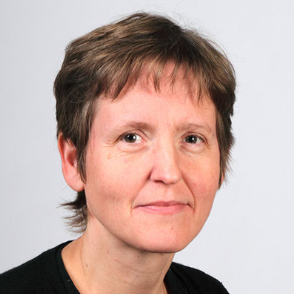Andersen, I., Fløttum, K. 2022. “Adults who fail the next generations and children who refuse to give up”: The story about climate change as a battle between the generations. In: Höllein, D. & Wieders-Lohéac, A. (Eds) Fridays for Future. Sprachliche Perspektiven auf eine globale Bewegung. Narr Francke Attempto Verlag. Germany: Tübingen.
Breivega, K.M.R., Hauge, K.H. & Tjomsland, M. (2022). Lived Democracy in the Classroom: Student views on risks and benefits related to oil exploitation in Lofoten. In Herheim, R., Werler, T.C. & Hauge (Eds.) Lived democracy in education. Young citizens’ democratic lives in kindergarten, school, and higher education, p. 141-152. Abingdon, G.B.: Routledge
Fløttum, K., Dahl, T., Scheurer, J. (forthcoming 2022/23) ‘Trying (hard), but it’s difficult’: Youth voices on lifestyle matters in a climate perspective. In: Svendsen, B. A., Jonsson, R. (Eds), Routledge Handbook on Language & Youth Culture.
Hauge, K.H. (2022). A tool for reflecting on questionable numbers in society. Studies in Philosophy and Education 41, 511–528. https://doi.org/10.1007/s11217-022-09836-6
Hauge, K.H., Werler, T.C., & Herheim, R. (2022). An elaborated understanding of lived democracy in education. In Herheim, R., Werler, T.C. & Hauge (Eds.) Lived democracy in education. Young citizens’ democratic lives in kindergarten, school, and higher education, p. 177-188. Abingdon, G.B.: Routledge
Trædal, L.T., Eidsvik, E. & Manik, S. (2022) Discourses of climate change education: The case of geography textbooks for secondary and higher secondary education in South Africa and Norway, Norwegian Journal of Geography, 76:2, 94-109, https://doi.org/10.1080/00291951.2022.2062044
Generational differences
Swim, J. K., Aviste, R., Lengieza, M. L., & Fasano, C. J. (2022). OK Boomer: A decade of generational differences in feelings about climate change. Global environmental change, 73, 102479. https://doi.org/10.1016/j.gloenvcha.2022.102479
Milfont, T. L., Zubielevitch, E., Milojev, P., & Sibley, C. G. (2021). Ten-year panel data confirm generation gap but climate beliefs increase at similar rates across ages. Nature Communications, 12(1), 4038. https://doi.org/10.1038/s41467-021-24245-y
Climate skepticism and misinformation
Poortinga, W., Spence, A., Whitmarsh, L., Capstick, S., & Pidgeon, N. F. (2011). Uncertain climate: An investigation into public scepticism about anthropogenic climate change. Global environmental change, 21(3), 1015-1024. https://doi.org/https://doi.org/10.1016/j.gloenvcha.2011.03.001
Cook, J. (2019). Understanding and countering misinformation about climate change. In Chiluwa, I. & Samoilenko, S. (Eds.), Handbook of Research on Deception, Fake News, and Misinformation Online (pp. 281-306). Hershey, PA: IGI-Global.
Psychological distance
Gubler, M., Brügger, A., & Eyer, M. (2019). Adolescents’ Perceptions of the Psychological Distance to Climate Change, Its Relevance for Building Concern About It, and the Potential for Education. In W. Leal Filho & S. L. Hemstock (Eds.), Climate Change and the Role of Education (pp. 129-147). Springer International Publishing. https://doi.org/10.1007/978-3-030-32898-6_8
Climate worry/anxiety
Hickman, C., Marks, E., Pihkala, P., Clayton, S., Lewandowski, R. E., Mayall, E. E., . . . van Susteren, L. (2021). Climate anxiety in children and young people and their beliefs about government responses to climate change: a global survey. The Lancet Planetary Health, 5(12), e863-e873. https://doi.org/10.1016/S2542-5196(21)00278-3
Sciberras, E., & Fernando, J. W. (2021). Climate change-related worry among Australian adolescents: an eight-year longitudinal study. Child and Adolescent Mental Health, n/a(n/a). https://doi.org/https://doi.org/10.1111/camh.12521
Hope
Marlon, J. R., Bloodhart, B., Ballew, M. T., Rolfe-Redding, J., Roser-Renouf, C., Leiserowitz, A., & Maibach, E. (2019). How hope and doubt affect climate change mobilization. Frontiers in Communication, 4(20). https://doi.org/https://doi.org/10.3389/fcomm.2019.00020

